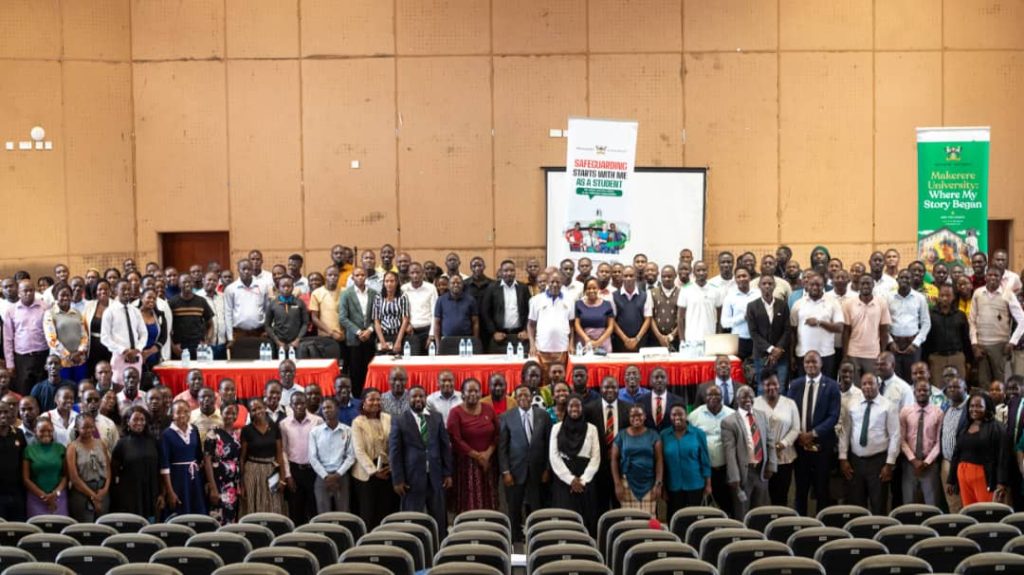
By Moses Lutaaya
On August 11, 2025, Makerere University’s Directorate of Graduate Training hosted a vibrant induction ceremony for the 2025/2026 postgraduate cohort at the Yusuf Lule Central Teaching Facility (CTF 2 Auditorium). Under the theme Positioning Graduate Training in National and Global Trends, the event brought together distinguished academics, university administrators, and eager graduate students to set the tone for a transformative academic journey.
The speeches delivered by among others Professors Julius Kikooma-Director Graduate Training, Robert Wamala-Director Research, Innovation and Partnerships, Buyinza Mukadasi- The acting Deputy Vice Chancellor and Academic Registrar, and Dr. Godfrey Kawoya Kubiriza-, Chair of the Department of Zoology, Entomology and Fisheries Sciences, underscored Makerere’s commitment to fostering research-led excellence and shaping Uganda’s future through innovative scholarship.
Professor Julius Kikooma, the Director of Graduate Training, opened the induction with a heartfelt welcome to the new students, particularly acknowledging this cohort of fresh graduate students for choosing Makerere University.
“We are thrilled that you chose Makerere University, despite other options, emphasizing the university’s gratitude for their decision. He highlighted Makerere’s evolution into a research-led institution, noting a remarkable milestone.”
He added that the number of fresh graduates admitted in the academic year 2025/ 2026 was big and promising. He urged that if all take their studies seriously, this would increase gradually on the number of graduands in the coming years.
“At our last graduation, we celebrated 144 PhD graduates in a single ceremony—a feat unmatched in our history. If you all take on your academic journeys seriously, we will witness a remarkable number of graduands in the coming graduation ceremonies.” He spoke.
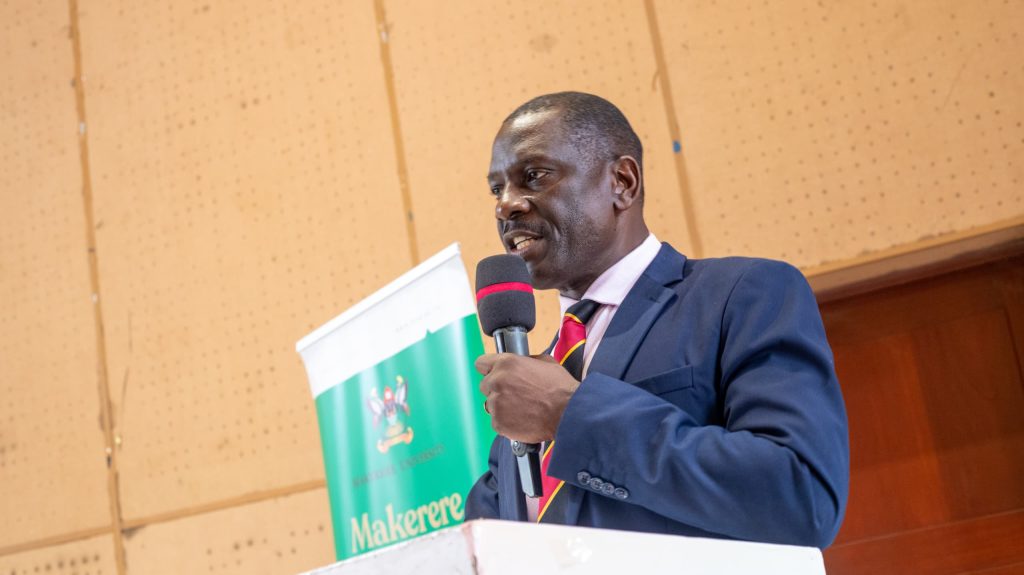
Prof. Kikooma urged students to embrace the Graduate Handbook as their “Bible,” a comprehensive guide to navigating academic policies and programs. He also encouraged the graduate students to participate in the Makerere University Guild to amplify postgraduate voices in leadership, ensuring that their concerns are addressed. “If you excel, we succeed. If you don’t, we haven’t succeeded either,” he affirmed, pledging the Directorate’s and Makarere University’s support to remove barriers and foster academic excellence.
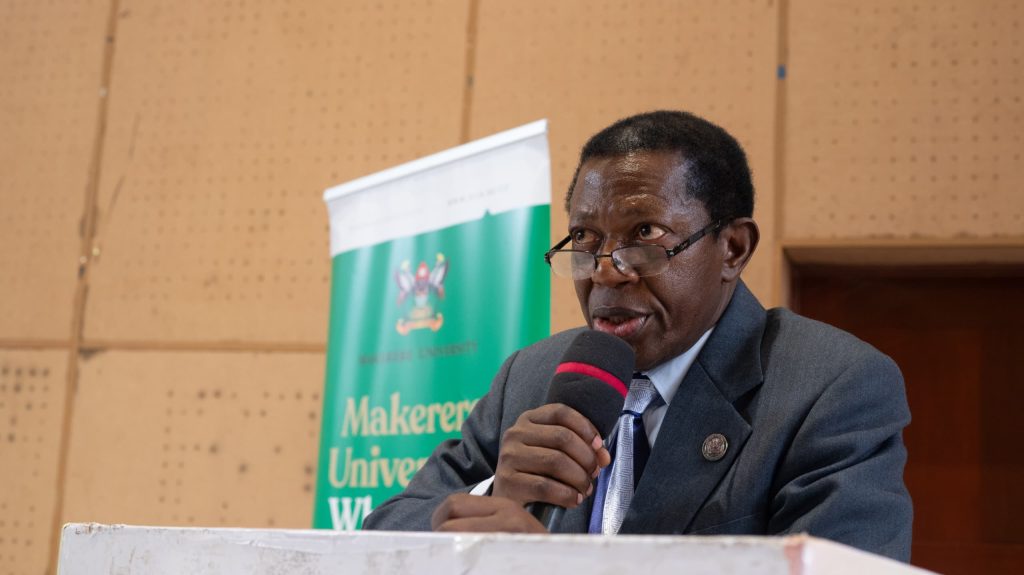
Professor Mukadasi Buyinza, the acting Vice Chancellor -Academic affairs and the Academic Registrar welcomed the students with warmth and optimism, referring to them as “ladies and gentlemen” rather than “freshers” to acknowledge their maturity. “Your academic journey starts here, but the destination is yours to determine,” he said, encouraging students to craft study plans and manage their time and finances wisely.
He emphasized Makerere’s vibrant research community, urging students to engage in seminars, explore beyond their programs, and embrace diverse perspectives.
“You are thought and opinion leaders,” Prof. Buyinza noted, calling for decorum and professionalism. He highlighted the university’s legacy of innovation, including patent registrations and startup companies, and invited students to contribute to this tradition.” He spoke.
He added, “Live your life, engage with the community, but be cautious in your choices, he advised, humorously cautioning about balancing relationships and academics.”
In his concluding remarks, Prof. Buyinza added,“You make us what we are. We are counting on your fresh ideas and energy to build for the future. The journey has begun, and Makerere’s newest graduate students are poised to leave an indelible mark on the nation and beyond.
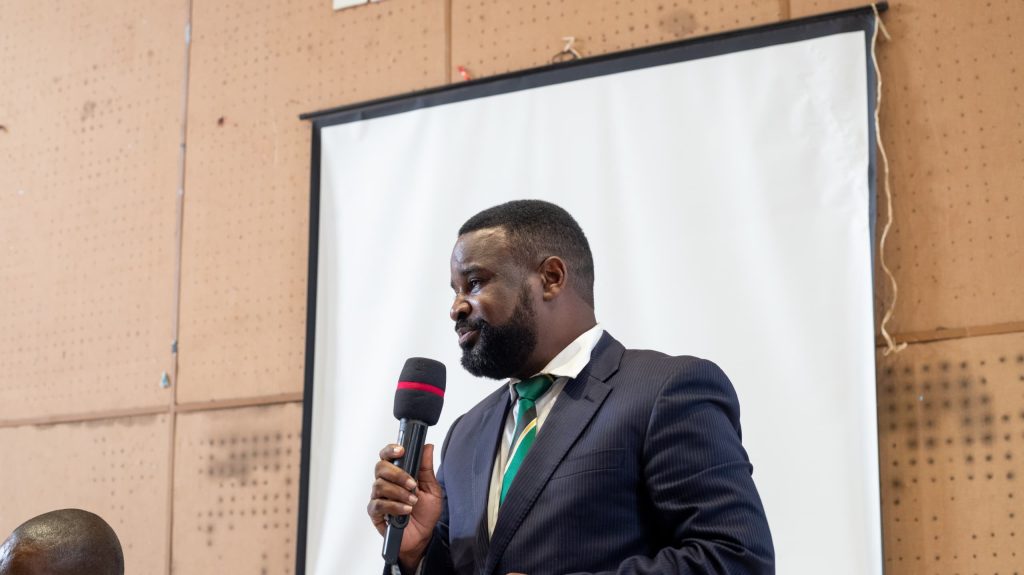
Professor Robert Wamala, the Director Research Innovations and Partnerships whose unit promotes and coordinates research activities, emphasized the university’s strategic alignment with Uganda’s national development goals, particularly the National Development Plan (NDP) and Vision 2040. He outlined Makerere’s research priorities, including health systems, agriculture, climate change, sustainable urbanization, and governance. “Your research must be anchored in these priorities,” he advised, encouraging students to explore funding opportunities through university partnerships with industries, NGOs, and academic institutions.
Prof. Wamala also stressed the importance of protecting intellectual property (IP). “Your innovations belong to you, but you must take steps to safeguard them, directing students to the university’s IP Management Policy on policies.mak.ac.ug. He highlighted the Innovation Hub, a facility designed to transform student ideas into prototypes and commercial ventures, urging students to leverage these resources early in their academic journeys.
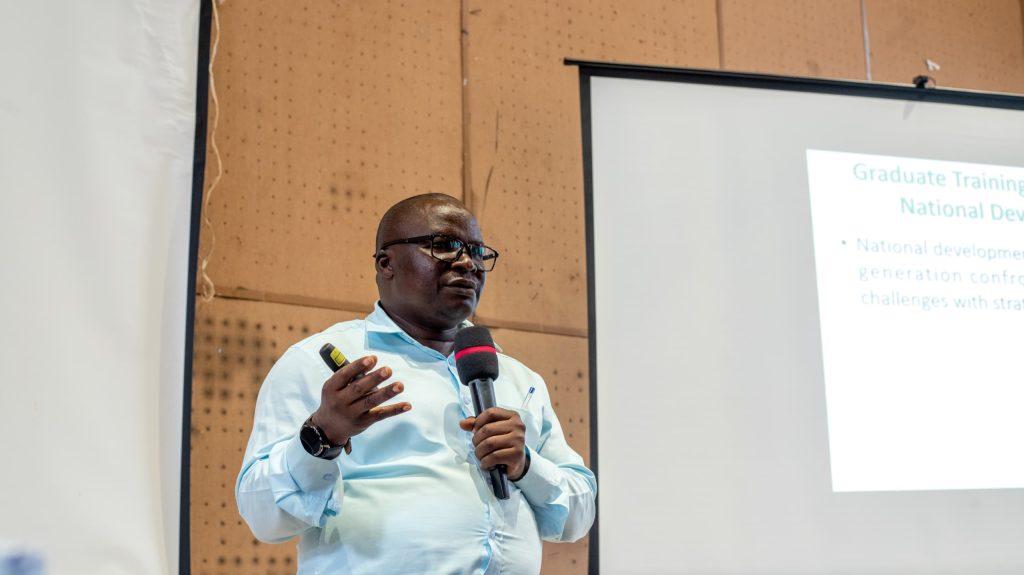
Dr, Godfrey Kawoya Kubiriza, Chair of the Department of Zoology, Entomology and Fisheries Sciences, challenged students to align their research with contemporary global and national challenges. “The problems of today are not those of yesterday, nor will they be those of tomorrow,” he said, citing the evolution of research focus from AIDS in the 1980s to climate change, biotechnology, and now Artificial Intelligence and bioinformatics. He urged students to craft evidence-based solutions that address Uganda’s priorities, such as industrialization, human capital, and infrastructure, as outlined in National Development Plan and Vision 2040.
Dr. Kawoya emphasized the responsibility of graduate students to generate new knowledge. “You have the opportunity and responsibility to create knowledge that drives policies and industries,” he said.
He also addressed challenges like low completion rates, citing inadequate research skills and misaligned motivations as barriers. “Complete your programs on time,” he urged, noting that funding agencies that support graduate students expect timely results.
The induction ceremony was a powerful reminder of Makerere University’s role as a beacon of academic excellence and innovation in Africa. With a legacy spanning over a century, the university continues to produce versatile graduates equipped to address Uganda’s and the world’s pressing challenges. The 2025/2026 cohort was left inspired, ready to harness the university’s resources, engage in interdisciplinary research, and contribute to national development.